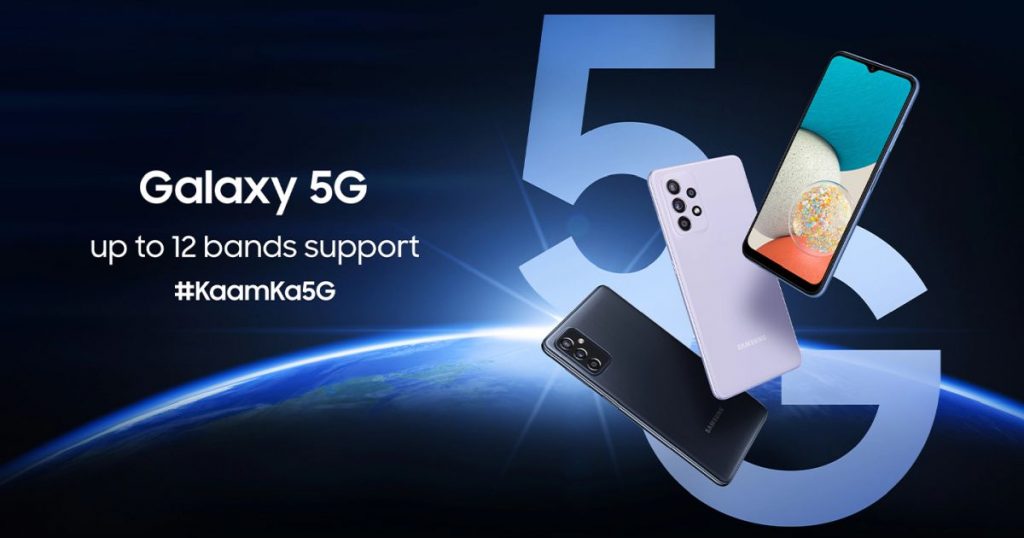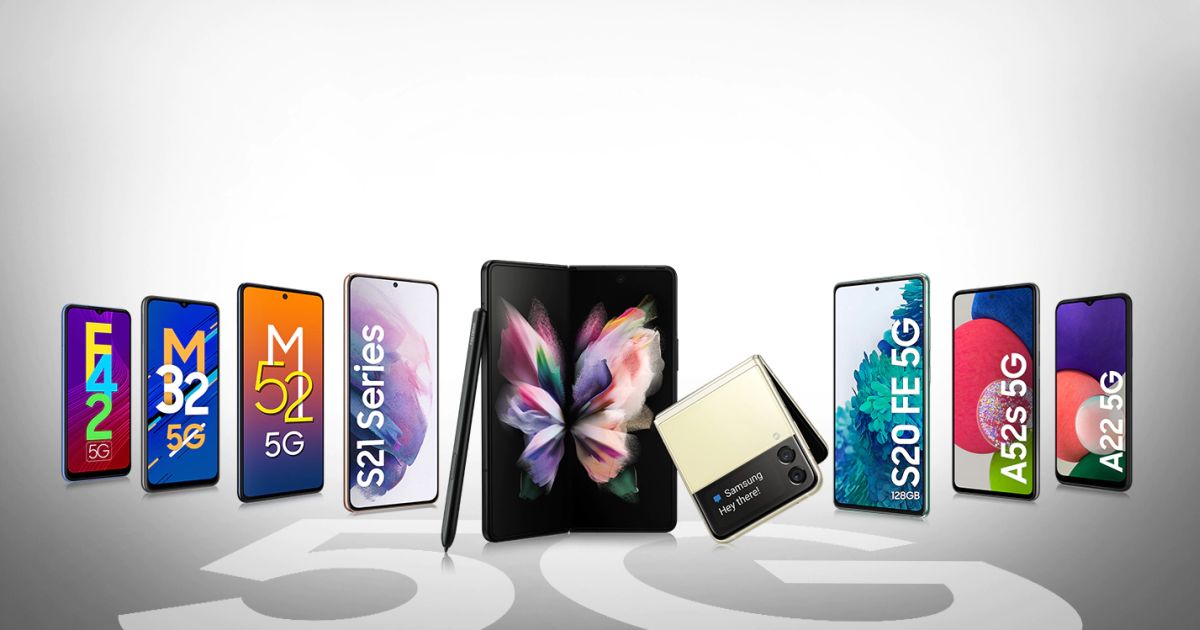Last Updated on January 17, 2022 by Asif Iqbal Shaik
Samsung is doubling down on its 5G promise in India. Unlike many other 5G smartphones from Chinese brands, the company has stated that all its 5G smartphones will support up to 12 bands to ensure wider network carrier compatibility once the next-gen cellular service launches in India. The South Korean brand has also kick-started a cheesy #KaamKa5G campaign to make its 5G handsets stand out in the market.
Samsung 5G Smartphones In India: List Of Support 5G Bands
- N1
- N3
- N5
- N7
- N8
- N20
- N28
- N38
- N40
- N41
- N66
- N78

Subscribe to Onsitego
Get the latest technology news, reviews, and opinions on tech products right into your inboxBack in 2019, Samsung launched the world’s first 5G smartphone, the Galaxy S10 5G, in South Korea. In its home country, the conglomerate is also involved in providing 5G base stations, radios, and all the required infrastructure to network carriers. Utilising its experience and expertise, the company has locked onto 12 bands in India that are listed above.
In India, other brands including OnePlus are focusing more on the N78 band as most telecom trials are being performed on this mid-band. However, Samsung doesn’t want to leave anything to chance has covered a wide spectrum.
Samsung’s 5G Handset Portfolio In India
The Galaxy M52 is the latest 5G smartphone from the Korean brand to break cover in India. You can read more about that handset by following this link. The company has also made efforts to offer 5G handsets right from the top-end segment to the budget category.
Those looking for a flagship device can consider Samsung’s futuristic foldable smartphones such as the Galaxy Z Fold 3 and Galaxy Z Flip 3. If a foldable device is not your cup of tea, you can choose from the Galaxy S21 series. In the mid-range, you have the Galaxy S20 FE 5G, Galaxy M52 5G, and Galaxy F42 5G.
Samsung also covers the budget segment with its Galaxy A22 5G and Galaxy M32 5G priced under ₹20,000. To make its products more enticing, Samsung has also promised regular software updates for its smartphones for up to three years from their launch date.


Discussion about this post